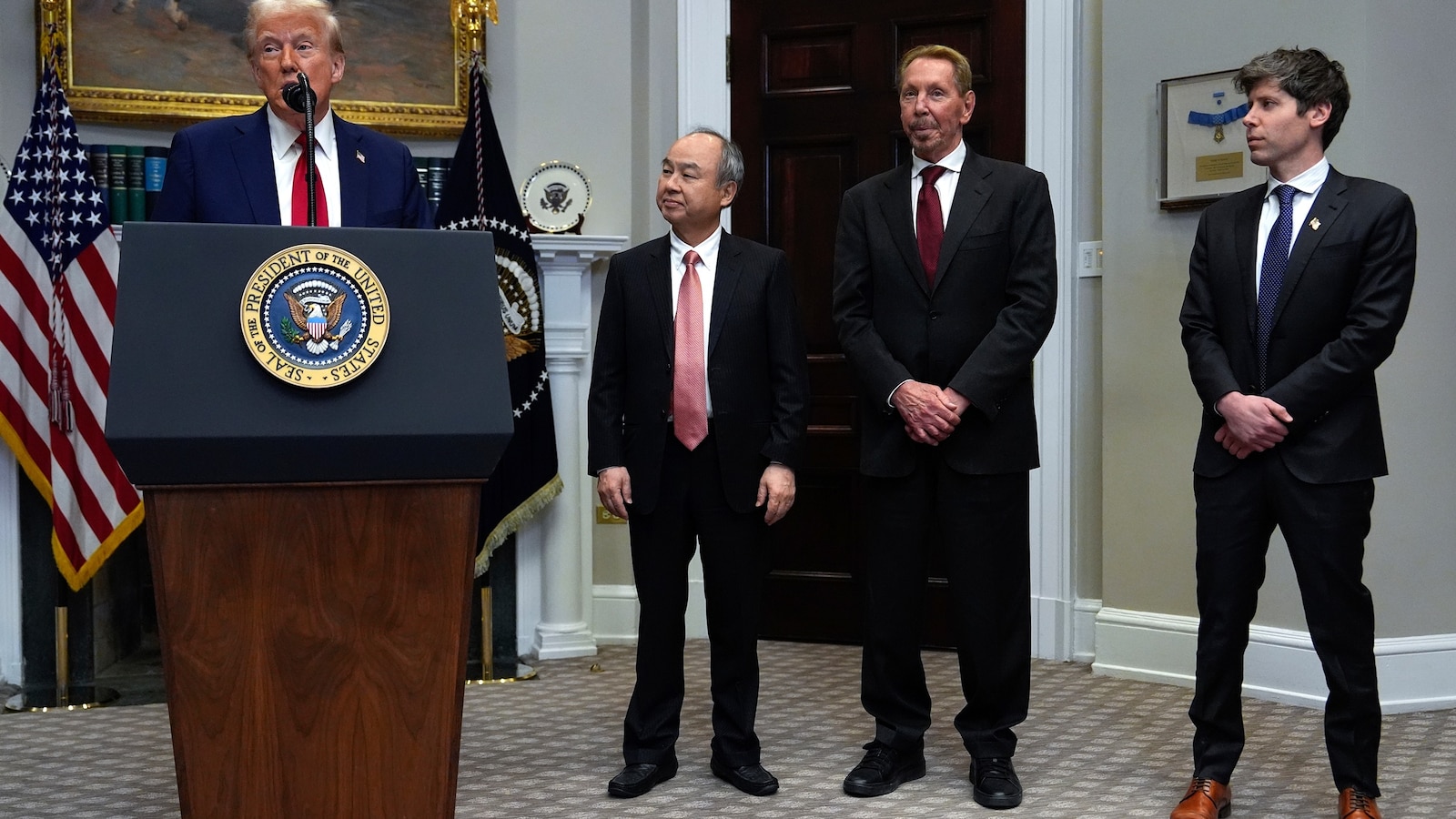As the technological landscape evolves, the intersection of artificial intelligence (AI) and corporate responsibility has emerged as a focal point for many industry leaders. With the implementation of the Trump AI Stargate initiative, tech firms are not just racing to innovate but are also facing the complex challenge of balancing their diversity, equity, and inclusion (DEI) programs with the implications of recent executive orders. This situation raises pressing questions about the future direction of AI development and the role of corporate responsibility in shaping a more inclusive technological future.
The AI Stargate Initiative: A New Era of Innovation
The AI Stargate initiative, launched during the Trump administration, aims to position the United States as a global leader in AI technology. This initiative promotes collaboration between government and private sector players, creating a fertile ground for innovation. However, as tech giants dive into this competitive arena, the challenge of ensuring that their advancements are equitable and accessible to all is more critical than ever.
Tech companies have long touted their commitment to DEI, promising to create workplaces that reflect the diversity of the society they serve. Yet, the rapid pace of AI development can often sideline these commitments. As firms engage with the AI Stargate initiative, there’s a growing concern that the focus on speed and efficiency might overshadow the foundational principles of equity and inclusivity.
The Tension between Innovation and Inclusion
The crux of the issue lies in the inherent tension between the urgency of technological development and the thoughtful implementation of DEI initiatives. While tech firms are eager to leverage AI for competitive advantage, they must also navigate the complexities introduced by new executive orders that may impact how they approach diversity and inclusion.
- Executive Orders and Their Implications: Recent executive orders have emphasized the need for accountability in federal contracting and funding for technology projects. This directive pushes companies to consider who benefits from their innovations and how equitable access to technology is ensured.
- Corporate Responsibility: As firms grapple with the repercussions of these orders, they must also reflect on their corporate responsibility. It’s no longer sufficient to claim commitment to DEI; companies must demonstrate it through actionable strategies that integrate inclusivity into the fabric of their AI projects.
Challenges in Implementing DEI in AI Development
Implementing DEI in AI development is fraught with challenges. The nature of AI technology, which often relies on data that may reflect historical biases, complicates the quest for equitable outcomes. Here are some of the significant hurdles faced by tech companies:
- Data Bias: AI systems learn from data, and if that data is skewed, the outcomes will be too. Companies must actively seek to identify and mitigate biases in their datasets to prevent perpetuating existing inequalities.
- Workforce Diversity: Achieving a diverse workforce is crucial for fostering innovation that reflects varied perspectives. However, the tech industry has struggled with underrepresentation, particularly among women and minority groups.
- Inclusive Design Practices: Developers must prioritize inclusive design, ensuring that technologies are accessible to individuals with disabilities and from diverse socioeconomic backgrounds.
Strategies for Balancing DEI and AI Innovation
Despite these challenges, there are proactive strategies that tech firms can adopt to ensure that DEI remains at the forefront of AI development:
- Commit to Transparency: Being transparent about data sources and algorithmic decision-making processes can help build trust with users and stakeholders. This transparency also aids in identifying and correcting biases in AI systems.
- Invest in Diverse Talent: Companies should invest in recruiting and retaining diverse talent at all levels of the organization. Implementing mentorship programs and partnerships with organizations focused on underrepresented groups can foster a more inclusive workforce.
- Engage with Communities: Collaborating with communities impacted by AI technologies can provide valuable insights into their needs and concerns. This engagement ensures that the technology developed is relevant and beneficial to a broader audience.
Looking Ahead: The Future of AI and Corporate Responsibility
The future of AI development will likely be shaped by how effectively tech companies navigate the dual pressures of innovation and DEI. As they respond to the challenges posed by executive orders and public scrutiny, a few key trends may emerge:
- Increased Regulation: Expect to see more regulatory frameworks that govern how AI technologies are developed and deployed, particularly in areas like facial recognition and data privacy.
- Focus on Ethical AI: There’s a growing movement advocating for ethical AI, emphasizing that technology should be developed with a foundational commitment to human rights and social equity.
- Collaboration Across Sectors: Public-private partnerships may become more prevalent, as governments and tech firms work together to ensure that AI advancements serve the public good.
Conclusion: A Collaborative Path Forward
As tech giants navigate the AI frontier, the journey ahead will require a delicate balance between ambition and responsibility. The integration of DEI into AI development is not merely a checkbox exercise; it’s an essential component of creating technology that serves everyone fairly. By embracing transparency, investing in diverse talent, and engaging with communities, companies can forge a path that leads to innovation rooted in equity.
In this evolving landscape, the commitment to DEI amidst the AI Stargate initiative can redefine not just how technology is developed, but who it ultimately serves. As stakeholders from all sectors come together to address these challenges, there’s an opportunity to shape a future where technology enhances the lives of all individuals, ensuring that no one is left behind in the rush towards innovation.
See more Future Tech Daily

